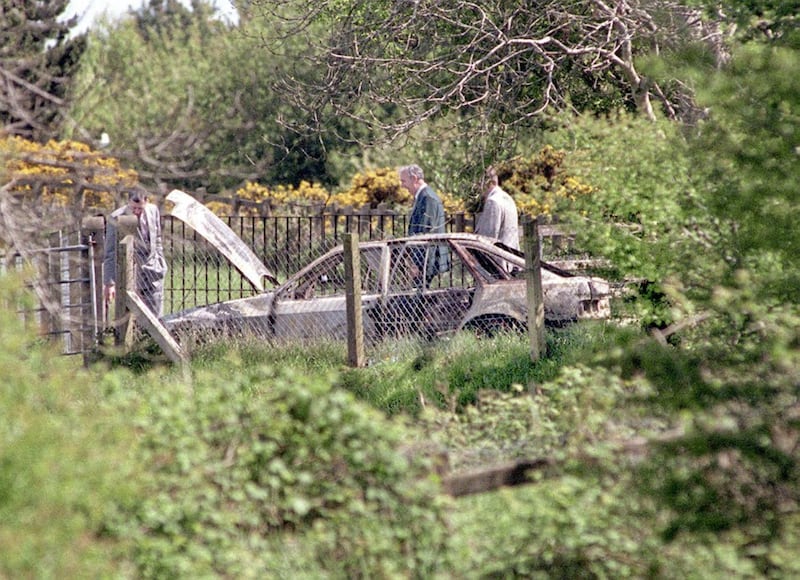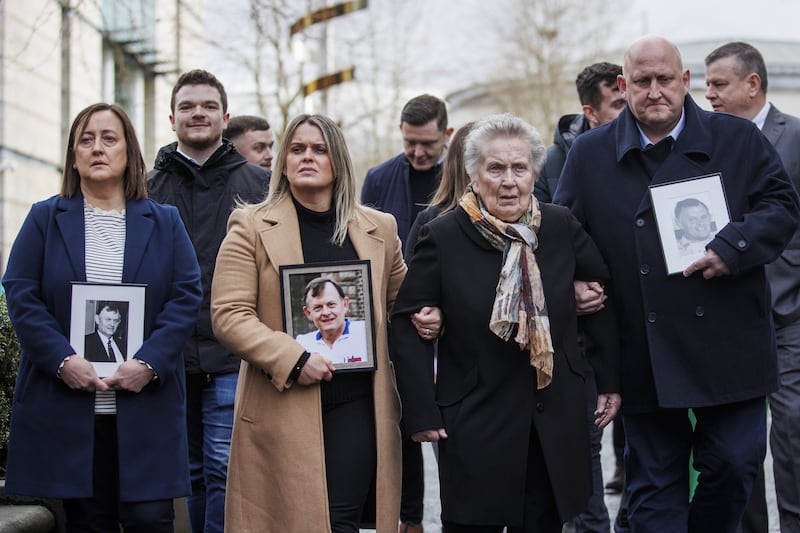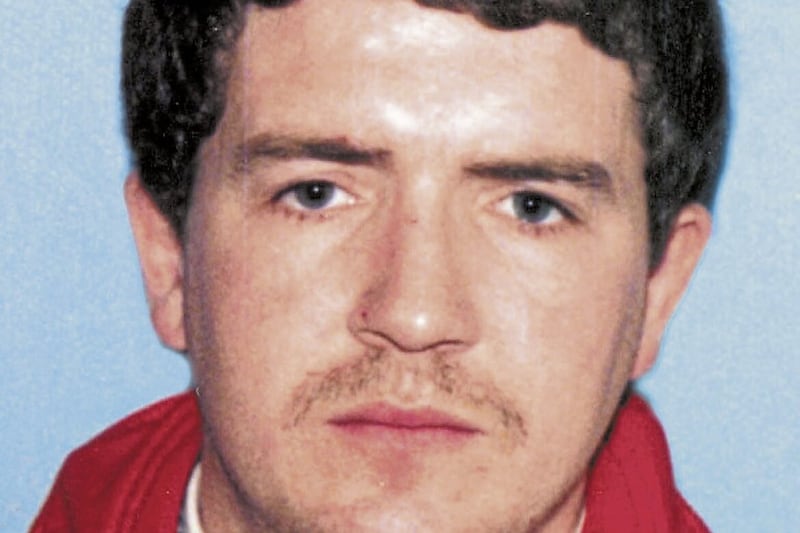A High Court judge has said a new body set up by the British government to examine legacy cases is not the “appropriate mechanism” to investigate the sectarian murder of Co Derry GAA official Sean Brown.
Mr Justice Patrick Kinney’s comments in correspondence to Chris Heaton-Harris came to light as Mr Brown’s widow threatened judicial review proceedings against the secretary of state over his refusal to order a public inquiry.
Instead, the British government has launched a legal challenge over a decision by Mr Kinney, who was the coroner during the Brown inquest, to issue a limited gist, or summary, of sensitive information linked to the loyalist killing.
The 61-year-old was beaten and abducted by a LVF gang as he locked the gates at Bellaghy Wolfe Tones GAA club in May 1997.

He was then taken in the boot of his own car to a laneway near Randalstown, Co Antrim, where he was shot six times.
An inquest was abandoned last month after Mr Kinney confirmed he was unable to complete the legal process due to PSNI and MI5 failures to disclose vital information.
Both made applications for multiple redactions to sensitive documents connected to the murder under Public Interest Immunity (PII).
These can be used by state agencies to withhold information they do not want the public to see.
The gist confirmed how more than 25 people had been linked by intelligence to the murder of Mr Brown, including several state agents.
At earlier hearings it emerged that a suspect in the murder was believed to be a serving member of the Royal Irish Regiment while another suspect held a personal protection weapon and was regularly visited by a police officer at his home.
It is now known that a RUC surveillance operation on LVF leader Mark ‘Swinger’ Fulton, who has been named in court papers as a suspect in the murder, was lifted the night before the killing and picked up again the following morning.
In correspondence to Mr Heaton-Harris last month Mr Kinney requested that a public inquiry be established.
It has now emerged that Mr Kinney does not believe the Independent Commission for Reconciliation and Information Recovery (ICRIR) can investigate Mr Brown’s case.
Under the British government’s Legacy Act all inquests not at their findings stage by May 1 will be halted and transfer to the ICRIR.
“In all the circumstances known to me relating to matters connected to the death of Mr Brown, I do not regard the ICRIR as the appropriate mechanism to deal with the investigation of his death or matters connected to it,” Mr Kinney wrote.
The comments may be seen as blow to the new body, headed by former Lord Chief Justice Sir Declan Morgan, as it prepares to begin its work next month.
A number of other legacy inquests are expected to collapse before the May 1 deadline is reached.
The ICRIR was contacted.
Elsewhere, in his correspondence Mr Kinney raises concerns about PSNI disclosure during the inquest asking “why was the disclosure process in this inquest handled unsatisfactorily”?
A spokeswoman for the PSNI said: “We are not aware of this correspondence.”
To date the there have been two police investigations and probe by the Police Ombudsman’s Office into the murder.
The second police investigation had an external oversight body that included representatives from the Brown family and Irish Department of Foreign Affairs.
“In light of what has now been disclosed to me through the inquest process serious questions arise as to whether those who conducted the previous investigations were misled and if they were misled, why that occurred and who was responsible for it?” Mr Kinney asked.
The senior judge suggests the issues raised in the Brown inquest are of wider concern.
“I recognise the complexity of matters involving agents of the state, and agent handling, but that it should have taken 27 years for there to be any acknowledgement of these issues and the need for their investigation means that the family of Mr Brown has not been well served by what has occurred following the death of their loved one,” Mr Kinney wrote.
“Why that is the position is a matter that should be of real concern to all citizens of the United Kingdom.”

Lawyers for Mr Brown’s 86-year-old widow Bridie have now written to Mr Heaton-Harris threatening judicial review proceedings.
Legal correspondence confirms she intends to ask a court to compel the Tory MP to provide an inquiry compliant with Article Two of the European Convention on Human Rights, which protects the right to life.
Niall Murphy, of KRW Law, said the Brown family “have been assiduous in their determination to ensure that the dignity of Sean’s memory is met by a lawful examination of the circumstances of his murder”.
He said the family agrees with the opinion of Mr Kinney and chief constable Jon Boutcher that “the only lawful mechanism to discharge the state’s international legal obligations is by means of a public inquiry and they look forward to this judicial review for the opportunity to clearly make that case”.
A spokesman for the British government said: “The secretary of state is giving careful consideration to the coroner’s ruling and related correspondence.”







